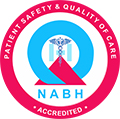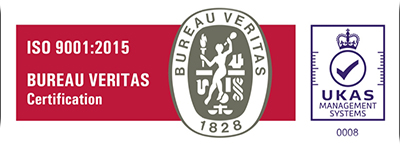Do you know the key to staying healthy as a woman? It is all about getting regular health screenings and checks. They help catch issues early and ensure you stay on top of your health. Gain crucial insights into knowing what screenings and tests you need at each stage of your life. It is all about caring for yourself and feeling secure in your health choices. Let us dive into the most crucial women health checks you need for your safety.
Essential Women Health Screenings
These days, they are easier to get health screenings and checkups for women than ever. Starting in your younger years, these checks are crucial to spotting problems early. What tests you need might change as you age, but their value to your health does not.
Your family can help make sure you are keeping up with your screenings. It is a team effort to stay healthy. Why not link your checkup schedule with big events, like your birthday? It makes it easier to remember. So, why not take control of your health today? Start with these checks and protect your future.
1. Women Health Screenings & Checks- The Pap Smear for Cervical Cancer
Have you heard of the Pap Smear? It is a must for women to help find cervical cancer early. The test is simple: Cells from your cervix are checked under a microscope. Getting this test regularly is a smart move.
Here is what you should know about pap smear tests:
- Start at 21 with a Pap Smear every three years.
- If you have risks like HIV, you might need the test more often.
- After 30, pair it with an HPV test every five years.
These tests fit easily into your health routine. They give you peace of mind and help you stay healthy. Being careful with one health area can show you need to watch others too. Like breast health – It is important to get mammograms and do self-checks.
2. Mammograms and Self Exams for Women’s Breast Health
Want to take good care of your breast health? Know how mammograms work. They are X-rays that find breast cancer signs early, sometimes before you even have symptoms. Catching it early can improve treatment efficacy and increase your chance of getting well.
To get the complete picture:
- You will have a mammogram where your breast is flattened to get a clear image.
- Start regular checks around 40 or earlier if you have risks.
- Do self-checks, too, so you know what's normal for you and can spot any changes.
With better mammogram tech and self-exams, you can make a screening plan that is just right for you. And do not forget about your heart health.
3. Cardiovascular Health Blood Pressure Exams for Women
Knowing your blood pressure is critical to avoiding heart disease and stroke. Testing is easy and helps find heart issues before they get serious. Aim for a blood pressure below 120/80 mmHg. Start checking in your 20s and do it every couple of years until you are 40, then every year.
If your blood pressure is high, get advice from your healthcare provider. They can help you figure out a plan, which might include changes to your lifestyle or medication.
Taking care of your heart is vital, but remember your skin, too. Regular exams can help catch skin cancer early and save your life.
4. Skin Exams and Cancer Prevention for Women
Do not forget to include skin checks in your health plan. They are simple but can make a huge difference, especially for spotting skin cancer early. A professional will check your skin for any odd moles or spots.
Experts say women should get a skin check every year. You will notice if something’s off if you know your skin well. Look for new spots, changes in moles, or anything that won't heal. If skin cancer runs in your family, you might need to get checked more often. Talk to your doctor about the best plan for you.
Taking care of your skin is just one part of staying healthy. You should also keep an eye on your bones as you get older.
5. Osteoporosis Screening Bone Density Tests for Women
Osteoporosis makes bones weak and more likely to break. Women’s health screening include bone density tests to evaluate your bone strength. These tests are key for spotting osteoporosis.
Thinking about when to get tested? Here are the guidelines:
- Osteoporosis can start at 65 years.
- If you have risks like a family history or past fractures, you might need to start earlier.
Bone density tests are easy and painless. They involve a quick X-ray. It is the first step to managing osteoporosis. And while you are thinking about bone health, do not forget your heart. Keeping an eye on cholesterol is just as important.
6. Heart Health Cholesterol and Lipid Tests for Women
A lipid panel test is one way to check your heart health. This test looks at cholesterol and fats in your blood, which tell you about your risk for heart disease.
Healthy women should get tested every few years. But if heart issues are common in your family, you might need to do it more often. What you eat and how much you move affect your cholesterol, too. So eat well, stay active, do not smoke, and keep alcohol to a minimum.
Heart health is crucial, as is keeping your blood sugar in check. It is another big part of your overall health.
7. Blood Sugar Management- Diabetes Screening for Women
For diabetes screening, remember these points:
- The A1C test gives you an average of your blood sugar levels.
- Start at 35 if you have no diabetes risks.
- If you are at higher risk, get checked more often.
Staying healthy means balancing all parts of your health. That includes checking for risks that are not always easy to see.
8. STIs and HIV/AIDS Screening for Women’s Sexual Health
Screening for STIs and HIV/AIDS is a must for early treatment and avoiding serious problems. HIV tests look for antibodies, and other STIs are found with urine or swab tests. Get tested every year if you are sexually active and more often if you are at higher risk.
Failing to detect STIs in their early stages can lead to big problems, like infertility or increased cancer risk. Hence, it is best to check for these diseases when the time is right.
9. Colonoscopy-Key to Women’s Colon Health
A colonoscopy is a big part of women’s health, helping find problems in the colon and rectum. It is usually recommended at 50, but you might need it sooner if you have risks. Talk to your doctor to figure out the best schedule for you.
There are different ways to check your colon health, so pick one you are comfortable with. Keeping your colon healthy is a proactive way to avoid colon cancer.
10. Lung Cancer Screening for Women’s Respiratory Health
Your lungs are so important, and lung cancer screening is a big part of keeping them healthy. A low-dose CT scan is a way to do it. This scan uses less radiation than normal and gives a detailed look at your lungs.
If you are 55 to 80 and have smoked a lot, think about getting screened. If you have symptoms like a persistent cough or chest pain, see your doctor immediately. Regular checks and exams can catch health problems early. Keeping up with your health screening is a must.
11. Thyroid Tests for Women’s Metabolic Health
Your thyroid might be small, but it has a big job. It affects your metabolism, energy, and even your mood. Keep an eye on it with thyroid function tests. These check your thyroid hormone levels.
You should continue testing your thyroid levels if you have had thyroid issues or even if your levels are now normal. Your doctor will tell you how often. Once your levels are stable, check them every year.
Watching your thyroid is just one part of staying healthy. It all fits together as part of your overall health plan.
Also Read : Prioritising Health Checkups for Women - Essential Screenings for Every Age
Prioritise Your Health- Book Your Appointment with Anderson Diagnostics Today
Now you know all about the health screenings and checks that are key for women. From reproductive health to checks for chronic conditions, they are all important. Choosing a trusted place like Anderson Diagnostics & Labs is smart. We have the latest tech and experts for all women’s health exams to ensure you get the best care. Take this knowledge and act on it. Book your appointment and take steps to keep yourself well. Anderson Diagnostics, the best scan center in Chennai is here to help you every step of the way.
FAQs
How do regular women's health screening & checkups contribute to long-term wellness?
Regular women's health screening & checkups play a crucial role in long-term wellness through
- Early detection of health issues, leading to timely and effective treatment.
- Assessment and management of risk factors for diseases like heart disease and stroke.
- Informed guidance on preventive care practices unique to women's health needs.
- Regular tracking of health metrics to notice changes and trends over time.
- Opportunities to discuss health concerns and get personalised advice.
Can you identify common women's health screenings for cardiovascular well-being?
- Blood Pressure and Cholesterol Testing Initial during routine physical and repeat every two years (blood pressure), four to six years (cholesterol).
- Electrocardiogram (EKG) Measures the electrical activity of the heart.
- Ankle Brachial Index (ABI) Detects Peripheral artery disease (PAD).
- Carotid Ultrasound Checks blood flow in carotid arteries.
- Coronary Artery Calcium (CAC) Scoring CT scan to measure calcium in heart’s arteries.
- Cardiac CT Scan Detailed imaging to detect blockages in small blood vessels.
- Cardiac Event Monitors For assessing irregular heart rhythms over time.
What are the recommended women's health screenings for reproductive health?
- Blood Pressure Check at least every 3-5 years if normal and without risk factors. More often, with risk factors or higher readings.
- Breast Cancer Discuss breast self-exams and mammograms with your provider, especially if at higher risk due to family history or genetic markers.
- Cervical Cancer Start Pap tests at age 21, every 3 years for ages 21 to 29, and then add HPV testing every 5 years for ages 30 to 65.
- Cholesterol Begin screenings at age 45 without risks or age 20 with risk factors. Recheck every 5 years, or more frequently if necessary.
- Diabetes Screen starting at age 35, repeat every 3 years, or earlier/more often with risk factors.
- Dental Exam Visit dentist 1 2 times annually for checkup and cleaning.
- Eye Exam Assess every 5 10 years prior to age 40. more often if issues arise or with diabetes.
- Immunisations Annual flu shot, tetanus-diphtheria boosters every 10 years, others based on personal health risk.
- Infectious Diseases Screen for chlamydia, gonorrhoea, and hepatitis C as recommended. HIV test once for ages 15 to 65 or more based on risk.









